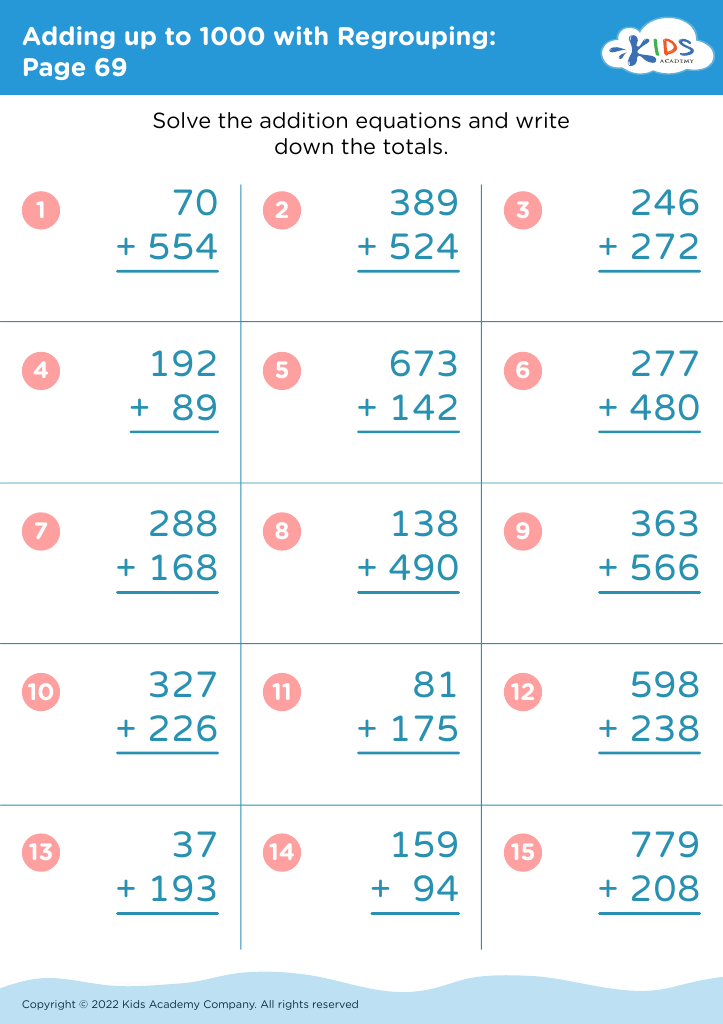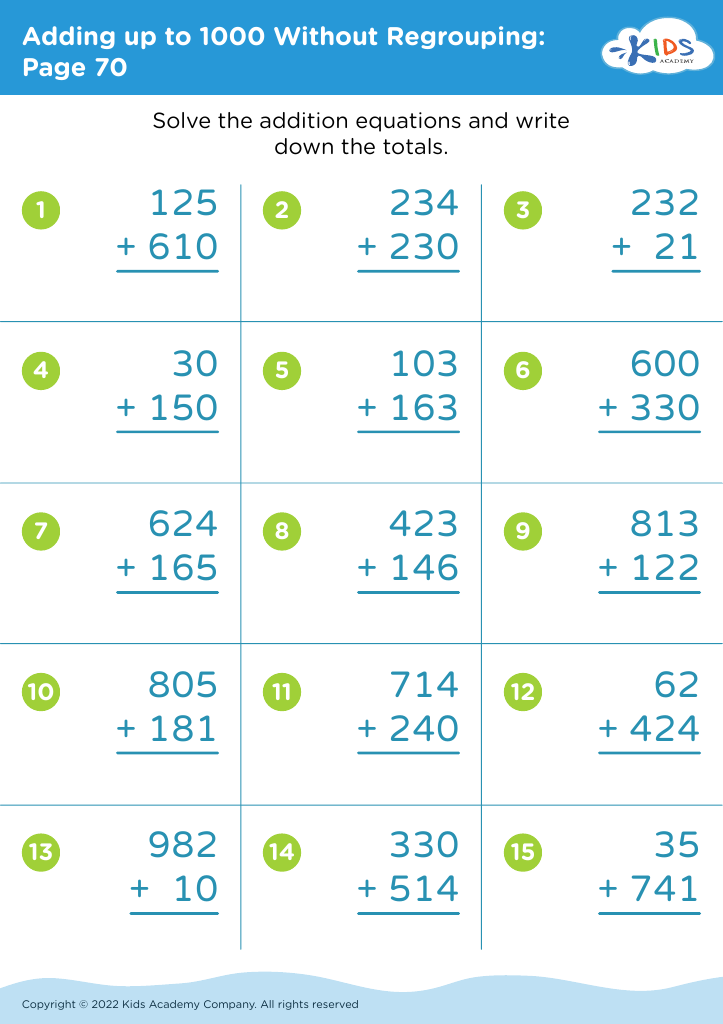Critical Thinking Adding up to 1000 Worksheets for 8-Year-Olds
5 filtered results
-
From - To
Unlock your child's potential with our engaging "Critical Thinking Adding up to 1000 Worksheets" designed specifically for 8-year-olds! These worksheets foster critical thinking skills while reinforcing addition concepts. Featuring a variety of challenging math problems, kids will explore ways to add one, two, or three-digit numbers, enhancing their problem-solving abilities. Each worksheet is designed to stimulate analytical thinking, helping students understand the reasoning behind their answers. With an array of interactive exercises, your child will enjoy mastering addition up to 1000 while developing essential cognitive skills. Perfect for classroom or home learning, boost your child's academic confidence today!
Critical thinking is essential for children's development, particularly for 8-year-olds who are beginning to form their own opinions and understand the world around them. Parents and teachers should care about fostering critical thinking skills because it helps children to make informed decisions, solve problems creatively, and analyze information effectively.
At this age, children are naturally curious and eager to learn. By encouraging critical thinking, parents and teachers can harness that curiosity to deepen understanding and enhance learning across various subjects. Those skills are fundamental not only for academic success but also for citizenship in a diverse society; they allow children to evaluate different perspectives and contribute thoughtfully to discussions.
Engaging in critical thinking activities, such as asking supporting questions in discussions, exploring various viewpoints in history lessons, or solving hands-on science problems, strengthens children's cognitive abilities and self-confidence. Ultimately, equipping children with critical thinking skills prepares them for future challenges in life and the workforce, where adaptability and innovative problem-solving are increasingly vital. By prioritizing critical thinking now, parents and teachers empower children to become thoughtful, decisive individuals who can navigate complexities in an ever-changing world.
















